Return of Red Clydeside as Labour makes clean sweep in Glasgow
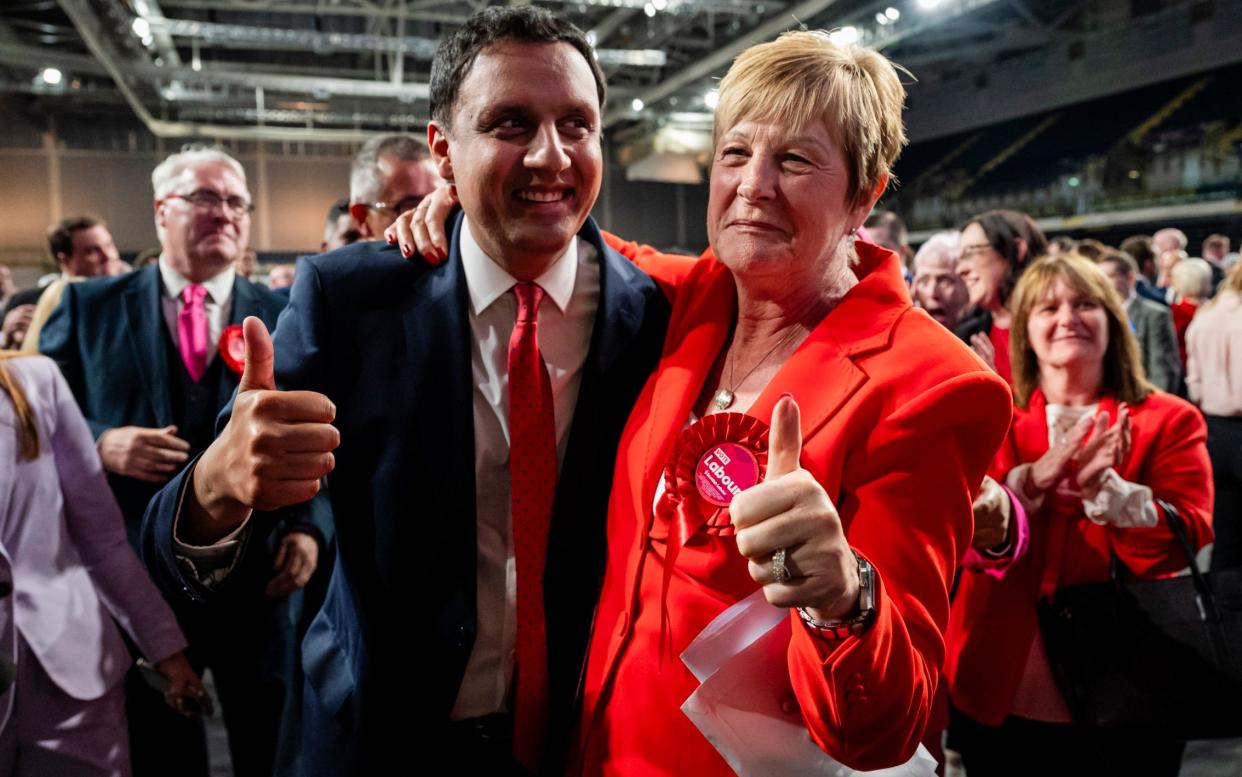
Labour has turned Glasgow red for the first time in almost a decade after winning a clean sweep of the city’s seats from the Scottish Nationalist Party.
The results in the city once known for its “Red Clydeside” movement are a symbolic return to the Scottish heartlands for Sir Keir Starmer’s party, which lost its stronghold in Glasgow to the nationalists in 2015.
Anas Sarwar, the Scottish Labour leader, was given a superstar’s welcome when he arrived in Glasgow’s Emirates Arena to watch the announcement of six new Labour MPs.
With each victory the whoops and cheers of Labour’s activists grew louder and longer as rivals stood with their heads in their hands.
The defeat of the SNP, which was mirrored across Scotland where exit polls predicted they would win just six seats, down from 48, was a “monumental skelping”, Stewart McDonald, former MP, admitted.
Mr McDonald, was beaten by Labour’s rising star, Gordon McKee, by 17,696 votes to 13,542.
His former Westminster colleagues agreed with him that the party had a lot of “listening” and “learning” to do and that they risked seeming out of touch.
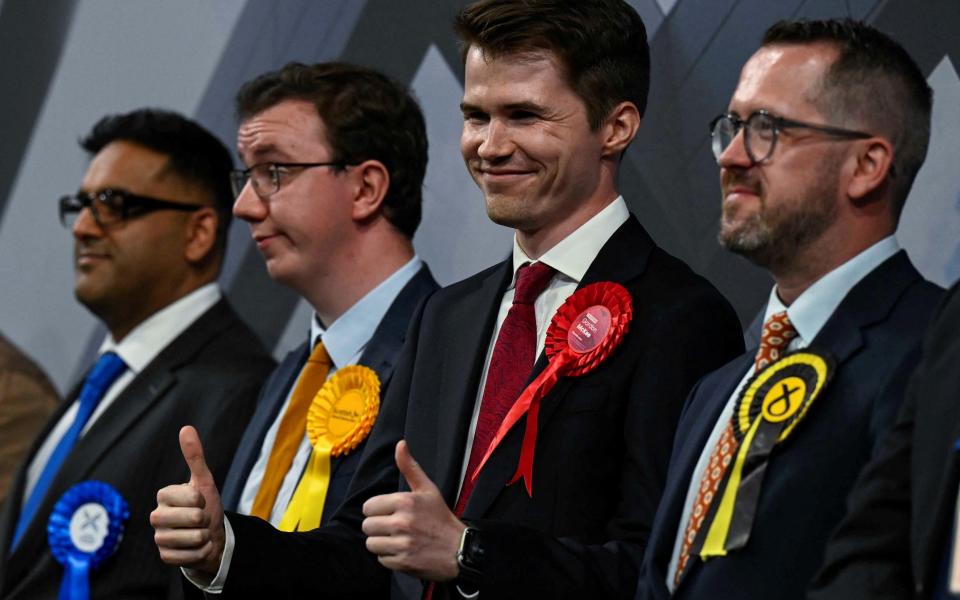
David Linden, who lost his majority by more than 3,500 votes, said that his party has “serious questions to answer”.
While the biggest concern of the electorate was the cost of living crisis, what voters were hearing about from the SNP were the “luxury camper van and iPads” that have featured in the police investigation into missing funds, Mr Linden said.
The results are a major turnaround for the city. In the last nine years, across Glasgow’s seven constituencies – reduced to six by boundary changes ahead of this year’s poll – there has only been one Labour win in 2017.
The minor gains that year were wiped out again under Jeremy Corbyn and with just one seat north of the border it was difficult to see any road to recovery.
But as the counters waited patiently to begin in Glasgow’s Emirates Arena at 10pm on July 4, a screech from a team wearing red rosettes huddled around a phone echoed across the sports hall as predictions emerged of Labour’s landslide.
The exit polls suggested the SNP were due to win just 10 seats which was later revised to six.
In one subdued corner of the Sir Chris Hoy Velodrome, built to host the cycling events during the 2014 Commonwealth games, SNP activists could be heard bemoaning the disastrous outlook as more than 400 count staff quietly shuffled through the papers.
“We were all a bit complacent,” said one activist. “We were still riding that wave from 2015.”
The bounce in popularity after the 2014 independence referendum has seen the SNP dominate Scottish politics for almost a decade. For many in the party who joined during that groundswell, July 4’s poll was their first taste of defeat.
That disappointment was evident in the tears of Alison Thewliss, a close ally of former first minister Nicola Sturgeon. Ms Thewliss was the sixth SNP of the evening to lose her seat in Westminster where she had been the party’s Home Affairs spokesperson.
Allies gathered round and hugged Ms Thewliss as she wept, with one leading a chant of “ohhh, Alison Thewlis” to the tune that had once been used to hail Jeremy Corbyn.
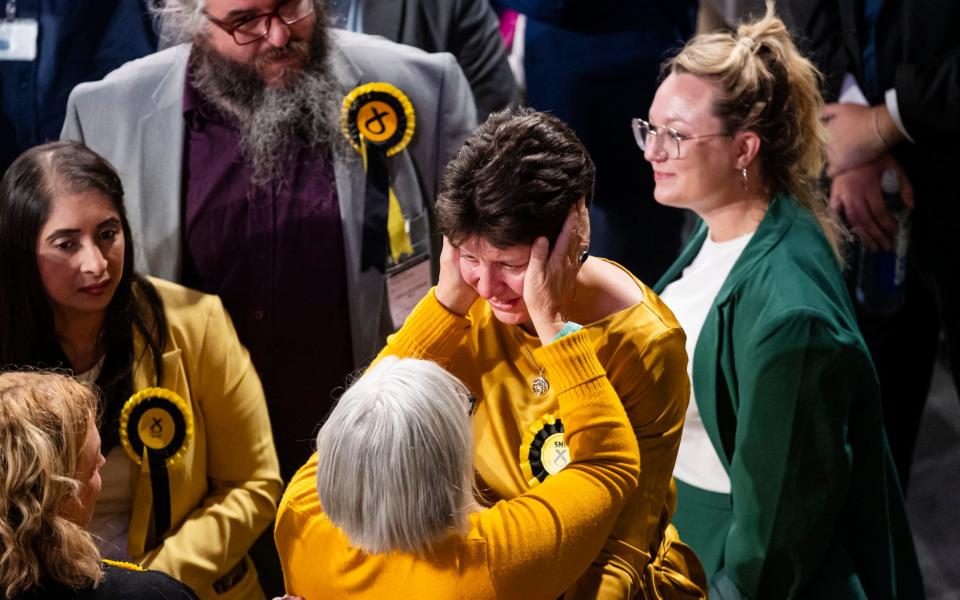
The snap election came just weeks after Humza Yousaf was forced to quit his role as First Minister in the face of a no-confidence vote. The vote came on the back of an NHS in crisis with the longest waiting lists, a school system in steep decline, a series of disastrous attempts to change the law and a police investigation into the party’s finances.
Despite the investigation party activists looked back on the Nicola Sturgeon era with rose tinted glasses.
“We were in a much better place”, one said, shaking his head as Labour’s ballots piled up on the tables in front of him.
Staff spent around five hours verifying and counting the votes. Even the arrival of four uniformed police officers did not seem to distract the counters from the task in front of them.
Police Scotland began investigating suspected voter fraud after they received reports of four suspected cases of “personation” from Glasgow City Council’s returning officer. The offence occurs when a person votes as someone else without authority.
Officers wearing blue gloves seized three ballot papers, and it is believed that inquiries were ongoing when the results were announced. Last year there were seven suspected cases of personation in the city.
As the six candidates took to the stage in turn to accept their new roles, there were two clear slogans – “change” and “trust”.
Among the winners was Maureen Burke who was tearful as she declared on stage that it was “only in the Labour Party” that a “working-class woman” such as herself – she worked in a factory between the ages of 15 and 40 – could have been elected.
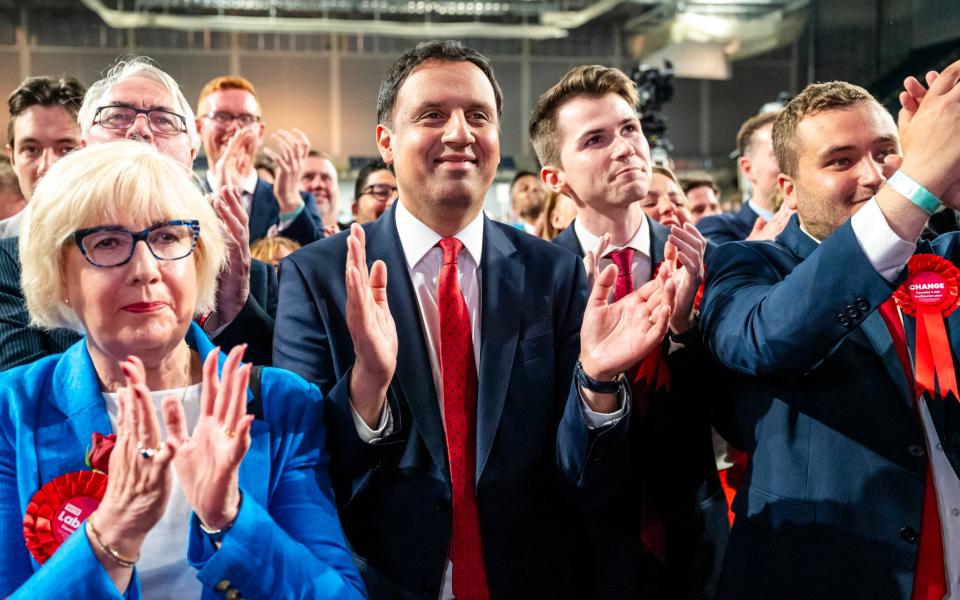
Glasgow is a crucial part of the history of the British Labour movement and had been one of the party’s strongholds since the “Red Clydeside” worker disputes that began during the First World War and marked the area around the river Clyde out for its radical left-wing activism.
Signs of Labour resurgence began in the city in 2022, when the party narrowly missed winning control of its council.
Since then local officials have been blamed for a massive drop in footfall and sales on the SNP. Political opponents claim that the streets that once held the parades for the UK’s first city of culture are filthy and the infrastructure is crumbling.
And it is not just locally that support for the SNP has struggled.
One major issue for the party has been its women problem. Nicola Sturgeon’s attempt to pass a law allowing people to self-identify their legal gender, making it easier for men to gain access to women-only spaces and sports.
The Gender Recognition Reform Bill became the subject of anger and division and the Government in Westminster took the unprecedented decision to block the bill.
But not before Mrs Sturgeon, the first woman to hold the post of first minister and one who described herself as “feminist to my fingertips”, had through her pursuit of trans rights left some of her supporters politically homeless and prompted her opponents to coin the rally cry “women won’t wheesht”.
In the wake of the controversy, and amid mounting pressure from the police surrounding the finances of her party, Mrs Sturgeon resigned in February last year.
The former first minister and her husband, the SNP’s former chief executive, Peter Murrell, were subsequently arrested as part of Operation Branchform. This was part of an investigation into the whereabouts of £600,000 of donations to the party originally intended to fight a second independence referendum.
They both deny wrongdoing. Mr Murrell is facing charges alleging he embezzled funds from the party for seven years whilst the investigation against Mrs Sturgeon, who has been released without charge, is ongoing.
Her replacement Humza Yousaf’s 14 months in power was beset by failure, notably the Hate Crime legislation which came into effect amid a flurry of anger. He was forced to resign before losing a no-confidence vote after he dissolved the power-sharing arrangement with the Scottish Greens.
Just over two weeks after losing their leader, the SNP were forced to begin preparations for the snap election called from Westminster.
But on July 4 Angus Robertson, the former SNP leader in the House of Commons, said that the exit polls were so disastrous because voters are fed up with Tory “incompetence”, rather than the SNP’s failings in government.
Turn-out in the six constituencies ranged from 47pc in Glasgow North East to 60pc in Glasgow South. There was a fall in turn-out of around five points for the constituencies that existed in 2019.
The SNP’s campaign centred around calls for talks on another independence referendum if the party won a majority of seats. But despite a “disastrous” night many in the SNP will likely reject demands for a change of tack.
Despite his defeat Mr Linden remains convinced the SNP’s core mission will succeed.
“The case for independence is alive and well,” he said.
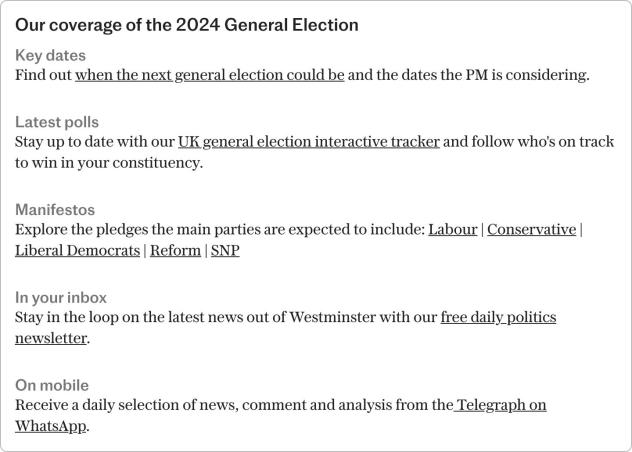

 Yahoo News
Yahoo News 
